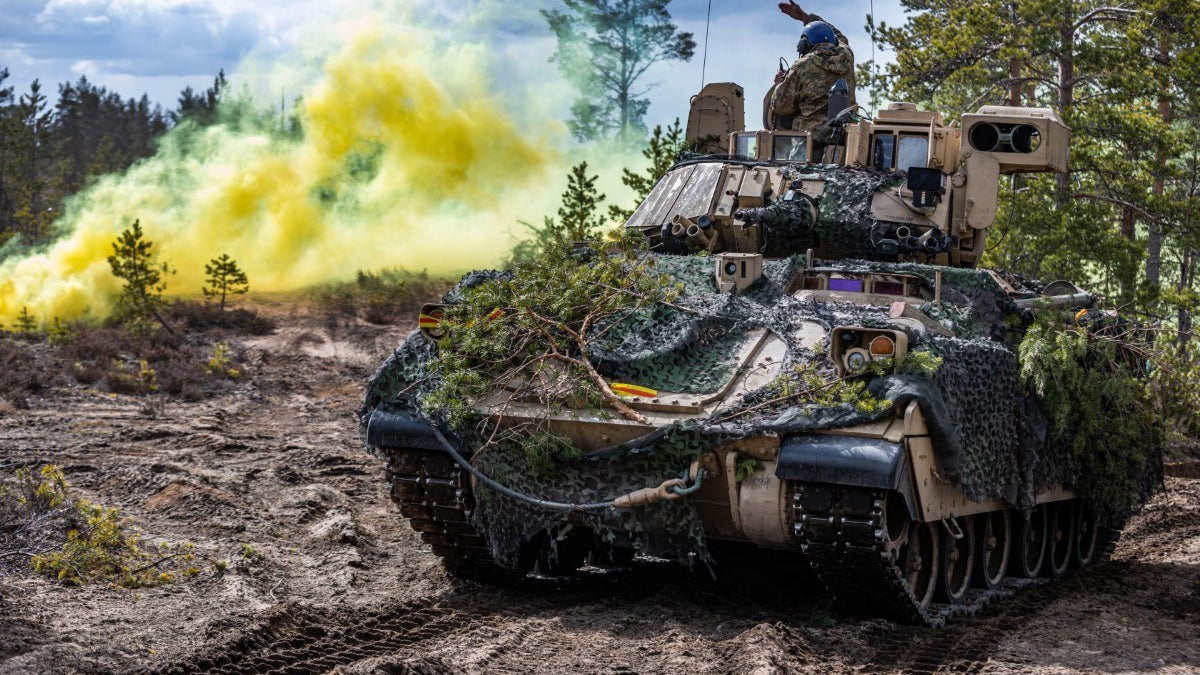Milley: Challenges, Crises Ahead
Milley: Challenges, Crises Ahead

America’s military faces an increasingly complex environment marked by a rapidly shifting geopolitical landscape, the nation’s top military officer said.
Speaking to the graduating class of the National Defense University, Joint Chiefs Chairman Gen. Mark Milley warned that the military must adapt. “We’re going to have to modernize the U.S. military very significantly in the next 10 to 15 years,” he said. The future force must be able to see at a great distance, shoot accurately and survive on a contested battlefield, Milley said. “Each of you are going to lead that change,” he said, adding that the U.S. is at a “historic pivot point, one of the most important pivot points in human history. We need your leadership, and we need it now more than ever.”
The 630 new National Defense University graduates, including military officers, civilian national security leaders and representatives from more than 70 allied and partner nations, will undoubtedly rise to positions of significant responsibility, Milley said. “It will be you who’ll be in charge when decisions of great consequence are going to be made,” he said. “There’s no doubt that the next couple of decades are going to see a whole series of very significant challenges and crises.”
While it’s impossible to accurately predict the future, there are some emerging trends, Milley said. To start, the geopolitical situation is changing in “very fundamental ways,” he said. With the rise of China and the threat posed by Russia, “it’s increasingly clear we’re in an increasingly multipolar environment,” he said.
China continues to take “increasingly aggressive actions to reshape the Indo-Pacific region and revise the global order in their favor,” Milley said. In addition to its economic growth, China also is building a “world-class” military, he said.
“War between the United States and China is not imminent, nor is it inevitable, but the People’s Republic of China is clearly on the potential path of military confrontation with its neighbors and the United States, and that could very well happen on your watch in the years ahead,” Milley said to the graduating class.
Additionally, Russia is a “very serious and dangerous threat to the world,” and North Korea and Iran continue to pose challenges as well, Milley said.
The character of war also is changing, Milley warned the graduates. From new technology to a contested battlefield, “our ability to see is matched only by our ability to strike,” he said. “What we can see, we can shoot, and today, we can shoot at greater range, with greater accuracy.”
Lasers, hypersonics, robotics and artificial intelligence are just some of the emerging technologies that will change the way the U.S. military fights, Milley said.
“Your success and the success of your troops, and the survival of your nation, will depend on how well we, all of us, collectively, take advantage of these technologies and master them for use in the military,” Milley said.
The U.S. must do what it can to prevent great-power war, Milley said. “The intent is to deter war, to deter great-power conflict, but if deterrence fails, we must win and win in the shortest amount of time possible,” he said.

